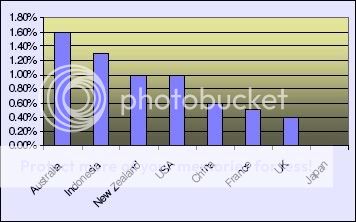Michael Yardney makes the following statement in his newsletter this month...
Now... I happen to agree with this. I believe the next property crash will begin sometime around 2016, and it could be a big one.
So what will cause this crash?
First of all, we need to consider our recent property boom, which in Australia was characterised primarily by the exchange of existing stock, rather than the development of new stock.
In other words, it was not a construction-led boom, unlike the recent boom in the USA (and also Ireland).
This means we now have a shortage of stock in many places as we move into the next growth cycle during a period of record population growth, record low vacancy rates, and rising rents.
As interest rates fall, the credit crunch eases, and house prices start rising again, I expect a new construction-led boom to kick off in Australia, probably around 2010-2011.
However, I think there is a good chance we will make the same mistake as the US... we will eventually build too many houses (there are currently 18.6 million empty houses in the US).
This oversupply will create a massive glut of property late next decade, just as the baby boomers start to die off, which will further increase supply and reduce demand. This is what will trigger the next big crash.
Anyway, that's just my theory. I would be interested to hear what Michael had in mind when he made the above statement in his newsletter, and also to hear what the other forum members think.
Cheers,
Shadow.

